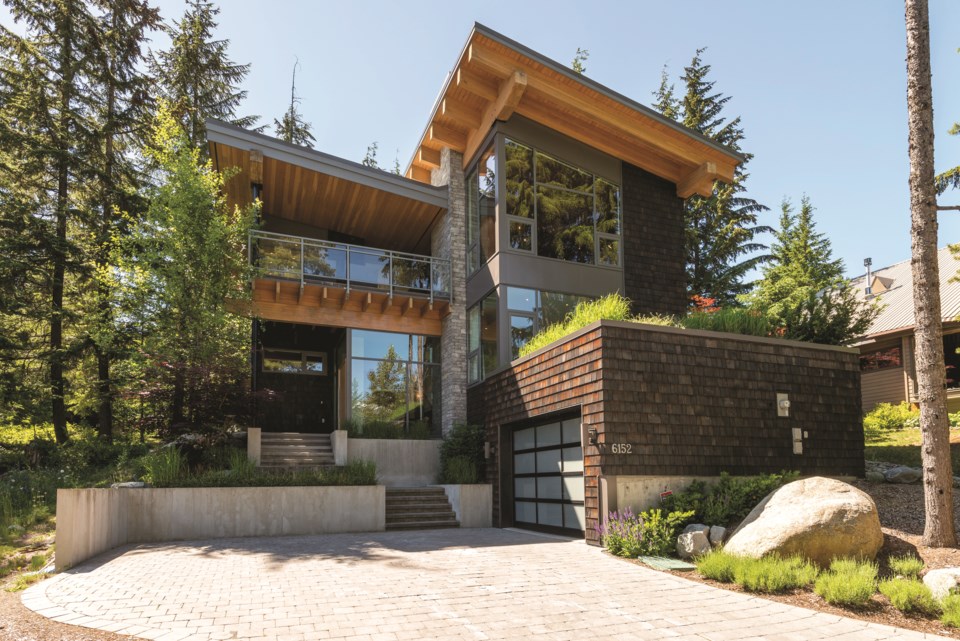Real estate activity across the Lower Mainland is showing no signs of slowing down into the second quarter of 2021.
According to the Real Estate Board of Greater Vancouver, residential home sales in the Metro Vancouver region totalled 5,708 in March—a 126.1-per-cent increase over March 2020.
In Whistler, the year-over-year change was even more drastic, at 194.7 per cent.
It’s an impressive figure, but one that should be taken in context, said Wendi Warm, owner of the Whistler Real Estate Company (WREC).
“Don’t forget that at this time last year, when they’re looking at numbers, our market had already started falling off due to the confusion and the unknown of what was about to happen [due to the pandemic],” Warm said.
“So when you compare year over year from 2020 to now, I think that’s where some of these huge numbers are coming in, and we have to take them with a grain of salt.”
That said, Whistler real estate was as hot a commodity as ever in Q1 2021.
According to stats provided by the WREC, total sales for the quarter climbed to 312—the highest quarterly sales volume in a decade.
Total sales value exceeded $450 million in Q1 (representing about 40 per cent of the total value reported in all of 2020).
While the single-family home market saw a 10-per-cent reduction in sales activity due to fewer listings, the average sale price rose 3.4 per cent compared to Q4 2020.
At the end of Q1 2021, the average sale price stood at $3.967 million (with a median of $3.25 million)—a 15-per-cent increase over the average for 2020.
Total sales activity for townhomes was down 45 per cent in Q1, but the reported number of sales stayed consistent with the 10-year quarterly average. The average sales value for townhomes increased by about 11 per cent, to $1.596 million (median $1.275 million).
Condo sales activity was up 25 per cent, with a five-per-cent increase in value to $885,000 (median $779,000).
On the luxury market, there were 15 reported sales of properties worth more than $4 million in the first three months of 2021.
As always, there are many factors at play in the market, said the WREC’s Pat Kelly, including low interest rates, new remote-work capabilities, and a lack of supply in Whistler.
There’s also the high cost of both land and construction, which make “ready-built” situations all the more attractive.
“What we’re seeing is that those properties attract an awful lot of interest, and we’re getting multiple offers, and properties selling above list price, which is like what is going on in the Lower Mainland, and it’s going on in the Sunshine Coast, it’s going on in Victoria,” Kelly said.
“Whistler is experiencing exactly the same thing that is going on in most of Southwestern B.C. Perhaps it’s a little bit more visible because we’re such a small market, but certainly it’s hard.”
With international borders still closed, the majority of buyers are Canadian, and about 80 per cent from the Lower Mainland, Warm said, adding that recently there has been more interest from Ontario.
“So that’s a bit of a shift, but I think our Ontario buyer origin from 2020 was eight per cent, so it’s still majority Lower Mainland by far; Vancouver people who have maybe always said we will eventually own a place in Whistler, now they’ve actually made the decision, now is the time, we are buying a place for our family,” she said.
With so much turnover in recent months, the makeup of Whistler as a community is set to change.
“[Buyers] are really looking at Whistler as, rather than a weekend place, it is a community they would like to live in,” Kelly said.
“That has implications for a lot of other things, because now you’re building up a community of full-time people who demand a different type of services than what we might have provided for tourists … so that’s a longer-term, bigger-vision type of trend to keep an eye on.”
What’s happening in Whistler is not entirely unique, said Tom Davidoff, associate professor and director of the Centre for Urban Economics and Real Estate at the University of British Columbia.
The COVID-19 pandemic has shifted the perspective around things like work and personal space, he said.
“If you don’t have to commute anymore, why not go to a natural paradise, and telecommute from there, and have more space? And I’m sure that that’s part of what’s going on [in Whistler], because we’re seeing that everywhere,” Davidoff said.
“The downtowns are doing fine, but what’s really thriving are single-family homes in suburbs and outlying areas.”
While high-end income earners have fared incredibly well through the pandemic, the shift will place extra pressure on low-income Whistlerites—possibly placing extra emphasis on things like regional transit in the coming years.
“Getting into the market is going to be extremely challenging,” Davidoff said.
“I think there’s going to have to be some response in terms of opening up supply, or making commuting more feasible … [or] just paying workers more so that they can make it work. I’m sure there will be pressure for that.”
For all the talk of Canada’s “housing bubble,” Davidoff isn’t predicting a steep drop-off any time soon.
“If interest rates stay as low as they are, and immigration picks up again, which it will, I think it’s hard to see a crash coming,” he said.
“These valuations are very rich, but I think given the growth we’ve seen in rents in recent years, and the interest rates we have, it’s very hard to rule these prices out as just irrational prices.”


-2.jpg;w=120;h=80;mode=crop)
